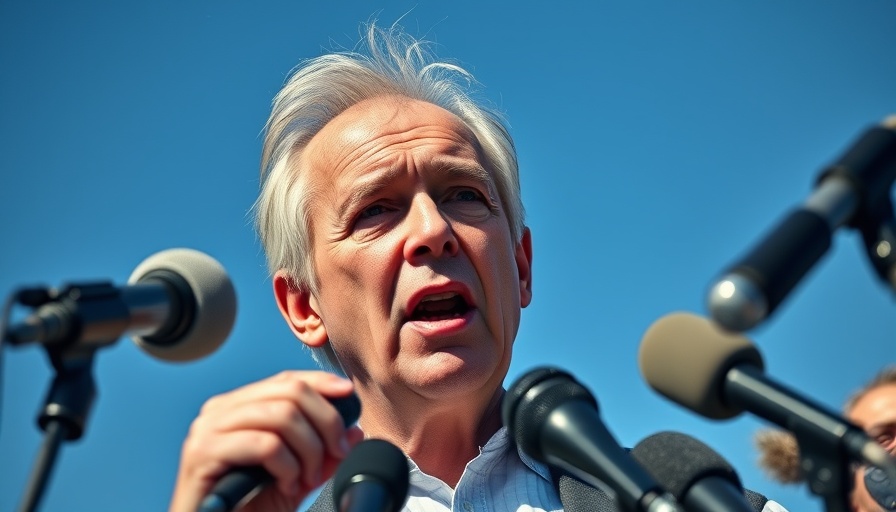
Understanding the Conspiracy Culture in Trump’s Washington
The political landscape of Washington DC has become an intricate web of conspiracy theories, particularly under President Trump’s administration. With claims shifting almost daily—from accusations against Barack Obama related to Jeffrey Epstein to various outlandish narratives involving notable political figures—navigating this flurry of information can be as perplexing as it is concerning. The once-hushed whispers of 'deep state' conspiracies have surged into the mainstream, often emanating from the highest office in the country.
Insights into the Role of Social Media
Social media plays an immense role in amplifying these conspiracy theories. Platforms like Twitter and Facebook allow for rapid dissemination of information (and misinformation), creating echo chambers where false narratives can thrive unchecked. As political rhetoric becomes more extreme, it fosters an environment ripe for suspicion and paranoia, making it difficult for individuals to discern fact from fiction. In the age of viral tweets and trending hashtags, the line between credible information and fictional stories has become dangerously blurred.
How Competing Narratives Distract from Critical Issues
While these competing conspiracy theories may entertain some, they serve as a significant distraction from pressing political discussions. Issues such as economic policy changes, pandemic management, and global conflicts are often overshadowed by the sensationalism of conspiracy narratives. Lawmakers are increasingly finding themselves embroiled in debates over unverifiable claims rather than addressing tangible solutions to the nation's problems. This pattern only heightens public distrust in governmental institutions.
Historical Context: A Longstanding Tradition
The United States has a rich history of conspiracy theories, from the fervor surrounding the assassination of President Kennedy to more contemporary claims regarding election fraud. These narratives often surface during politically charged times, reflecting public fears and uncertainties. Understanding this historical pattern can offer insights into how and why conspiracy theories gain traction—particularly among those feeling disenfranchised by traditional political structures.
Conspiracies as Political Tools
One of the most troubling aspects of conspiracy theories is how they can be weaponized for political gain. President Trump himself has a history of promoting conspiratorial ideas to deflect criticism or redirect public focus. By establishing a narrative where opposition figures are portrayed as hiding dark secrets, the current administration effectively shifts scrutiny away from its own actions. This strategy not only raises ethical questions but also endangers the integrity of democratic discourse.
What This Means for Citizens
For everyday citizens, understanding the implications of these conspiratorial narratives is crucial. It is essential to approach information critically and seek out trusted news sources. As conspiracy theories become more normalized in political discussions, the responsibility falls on individuals to filter noise from news and engage thoughtfully with information that impacts their lives and communities.
Looking Forward: The Future of Political Discourse
The ongoing emergence of conspiracy theories in American politics presents a challenging landscape for the future. As traditional media outlets strive to report responsibly, misinformation campaigns launch from the shadows, further complicating the communication environment. The demand for media literacy education has never been more urgent. Engaging young people in critical thinking about media will be essential for fostering a more informed citizenry that can navigate the complexities of modern political discourse.
 Add Row
Add Row  Add
Add 




Write A Comment